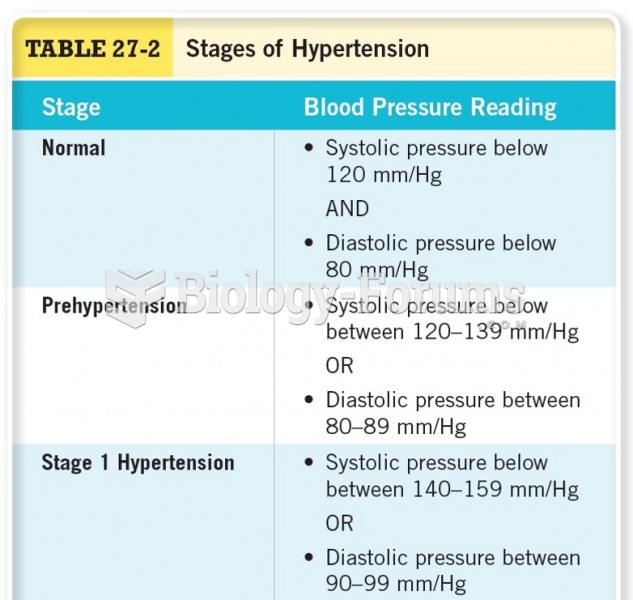This topic contains a solution. Click here to go to the answer
|
|
|
Did you know?
Amphetamine poisoning can cause intravascular coagulation, circulatory collapse, rhabdomyolysis, ischemic colitis, acute psychosis, hyperthermia, respiratory distress syndrome, and pericarditis.
Did you know?
The average human gut is home to perhaps 500 to 1,000 different species of bacteria.
Did you know?
In 1886, William Bates reported on the discovery of a substance produced by the adrenal gland that turned out to be epinephrine (adrenaline). In 1904, this drug was first artificially synthesized by Friedrich Stolz.
Did you know?
In 1844, Charles Goodyear obtained the first patent for a rubber condom.
Did you know?
Asthma cases in Americans are about 75% higher today than they were in 1980.







